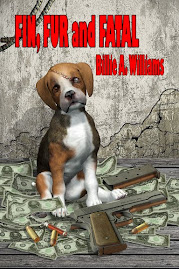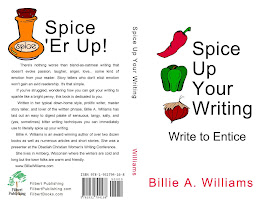 |
| Watch For The Raven |
Let's examine The Painted Pony for a minute. Hopefully, without killing the story. As readers and as writers we come to the story with different expectations.
The read in us, swallows up the words a t a pace that's comfortable, digestible and curious about character, plot, setting and depending on the story, a myriad of other details, all perhaps, subconsciously. If the writer is good, all these things pull the reader, you, into and through the rabbit hole of story into a world you, the reader, want to savor.
As a writer you may enjoy the same joy of reading and yet somewhere you are thinking. Hook, okay, hook is in place. Horses foster a more or less universal interest. Whether it's a wish for the freedom and adventure of the old west, or a churning desire to lift our head and stir the wind with an abandoned gallop without the tethers of life and its responsibilities. You, writer/reader, may have your own reasons to be drawn in by that first sense of horse and the thunder of hooves shaking the ground beneath your bare feet.
Not only do we know we're observing a painted pony, why not a pinto, is there a difference? Couldn't it instead be an Arabian stallion, or a Clydesdale, the thunder of his/her hooves would certainly rumble the ground if it were a Clydesdale. For the moment we must assume the writer has a reason for using a paint, over the others. Does it suggest an era, or a custom, or culture? My mind is drawn to the graphics, hieroglyphics', on cave walls, some, at least, the horses look like painted ponies, is that the reason for this image? My experience and knowledge will try to reason out the choices as critics try to do as they examine works of deceased authors. I never interpreted any of Shakespeare's works the way my high school English teacher did. Does that mean I was wrong? I don't think so, now, I think my experience, my creative imagination, saw what it could have been when Shakespeare wrote it originally.
Back to our Painted Pony. Immediately the author names the pony so you, the reader, will get a sense of this horse as opposed to any other. Embers, the glowing coals left in a fire, they aren't blazing fire, though, with the right conditions, they could be. And what of Daisy, she loves me she loves me not, wild flower or garden cultivated, again love by many, thrown away as a weed by others. Both horses could show us dual personalities. Is that the author's reasoning?
The third paragraph grabs emotions. Nearly everyone has felt grief. And there are so many sources and depths of grief. What is Jamie's grief? How does Ember trigger this memory? Or, why? It's obvious, at least to me, horses play a significant role in Jamie's life. The words she, the author uses to describe Jamie's thoughts of horse, delightful creature, magnificent, not beast, but creature—tell the reader subtly how she feels about horses or at least this horse.
Characterization is a tricky business for writers, especially new writers. How do you describe a person without telling? What has the writer shown us so far about our main character. How did it become part of the character Jamie Lynn without becoming description told to the reader? The first clue is the way you find out about people in real life—it's through their actions. As the old saying goes, "actions speak louder than words."
We see Jamie slide form Daisy's saddle to feel the earth, sensitive to subtle earth changes I think. We learn Jamie is familiar with mountains, especially these mountains.
Word choice surfaces as we find out Jamie is Native American and that perhaps that has cast a stigma on her development, at least, in part. But now we see her as a business woman in bare feet, riding a horse, chasing or at least following another horse…why didn't she wear cowboy boots or, given her heritage, moccasins? Subtle things develop your character even when written stream of consciousness.
You can list more things we learn about Jamie form this short chapter. What else do you notice as a reader and/or writer?
Her father's words, what do they add to the story besides word count? Was the message twofold? Does it tell us more about Jamie? And her father? Maybe even hint at the relationship?
The last sentence is the hook that makes us want to turn the page—a child's distress call –why didn't the author use different words, scream, beller, cry, sob, how many synonyms can you think of that could have said similar, if not the same thing?
As writers our tools are words. Precise, words, not flowery (thank you Mrs. Sartorus) words, but precise, strong, colorful, but not gaudy, words that don't parade themselves in front of the reader telling of their literary prowess with a huge vocabulary base, but instead showing the reader what precisely the writer's imagination sees.
Showing, never telling, never say never-- because there are times when the narrator needs to condense and summarize to move the story forward quickly. We don't need to see Jamie getting her feet wet in the dew laden grass as she goes to saddle Daisy for her morning ride. We didn't need to know Jamie had bare feet. We didn't need to see her saddle Daisy or feed her sugar cubes, not this time. We didn't need to see Jamie's bare feet or any of the earlier stuff to inform our story, but if it had been important to the later story we could have had our narrator tell us all this—otherwise, showing by action, is the preferred and better choice.
As a mystery writer, pointing your reader's mind and eye is essential. You play fair with your reader by directing their attention where you want them to focus, hiding clues in plain sight.
Next we'll try to get our author to turn her muse loose on chapter two.
 So far we have Jamie and her painted pony at a scene that hasn't yet been described by the author. I figure we have at least 3 choices. Here are the fourI'd like you to vote on.
So far we have Jamie and her painted pony at a scene that hasn't yet been described by the author. I figure we have at least 3 choices. Here are the fourI'd like you to vote on.












